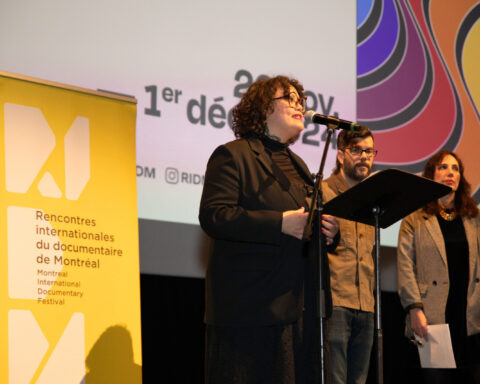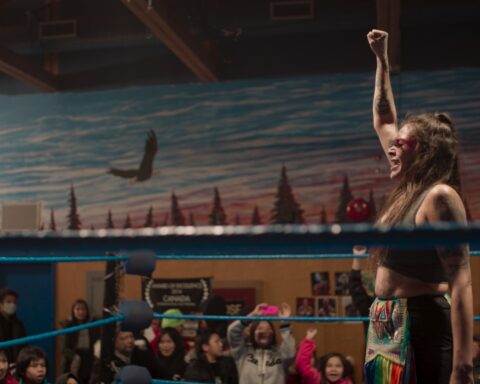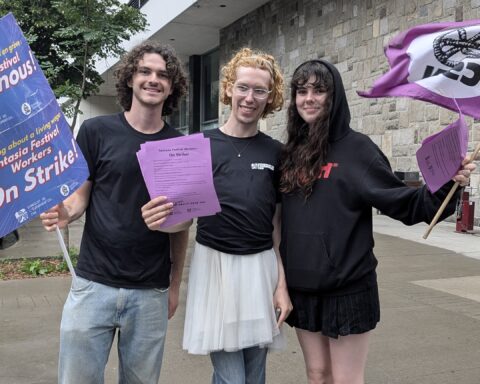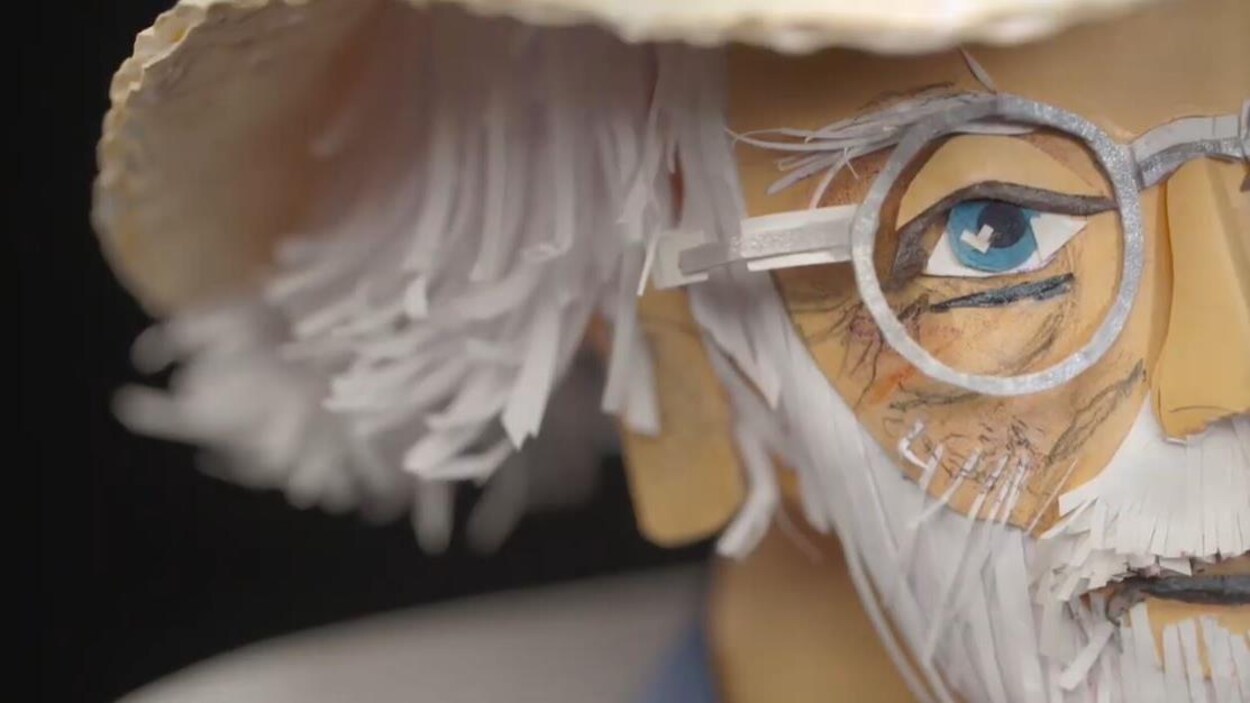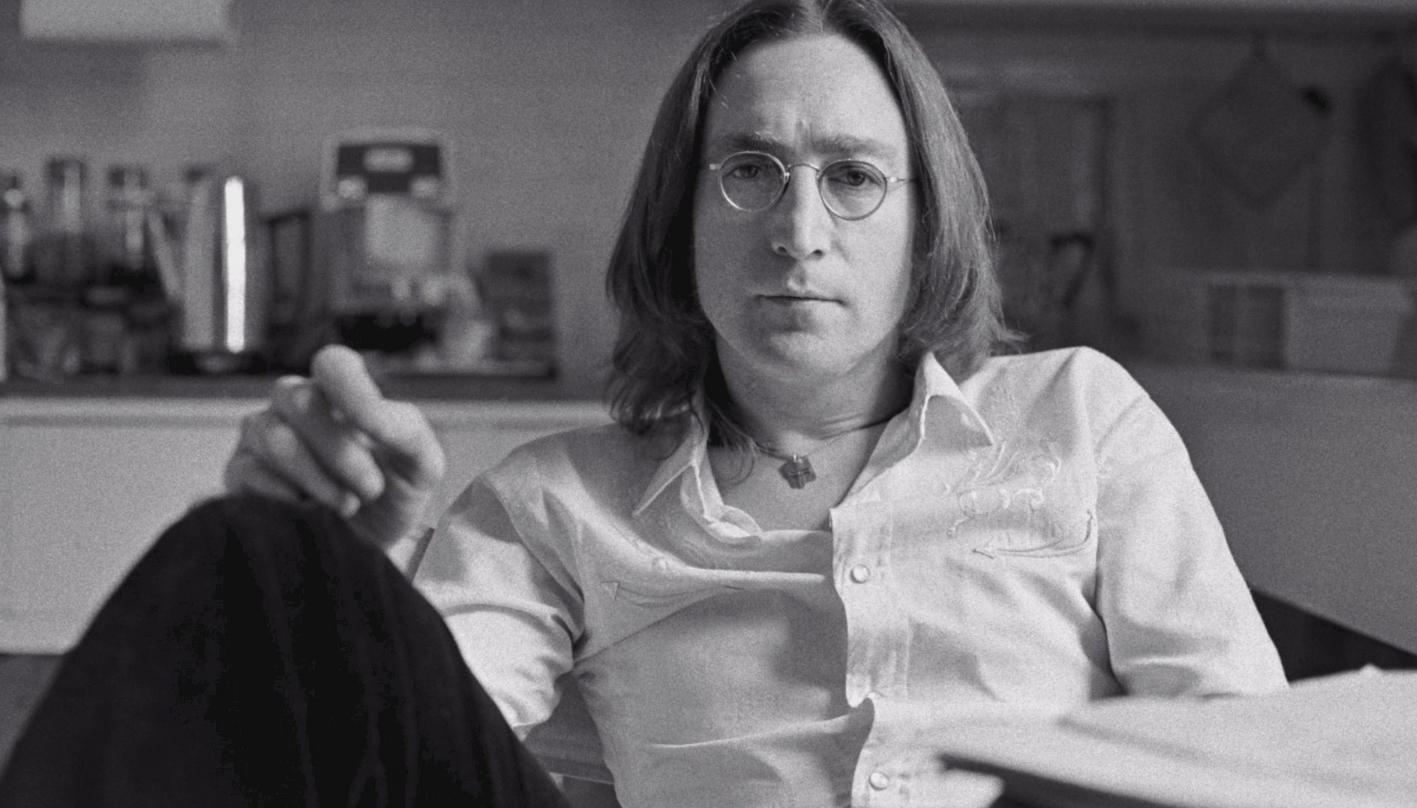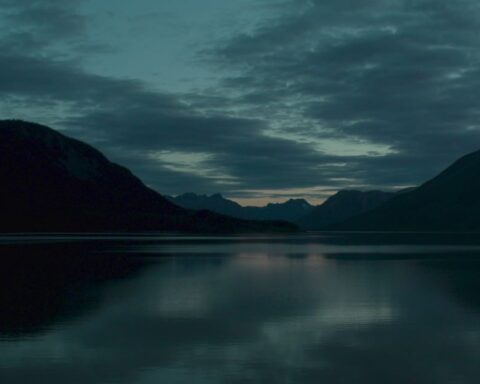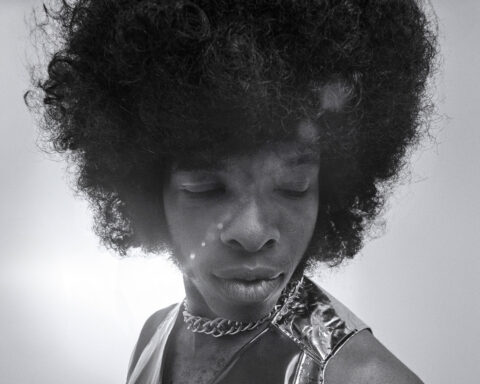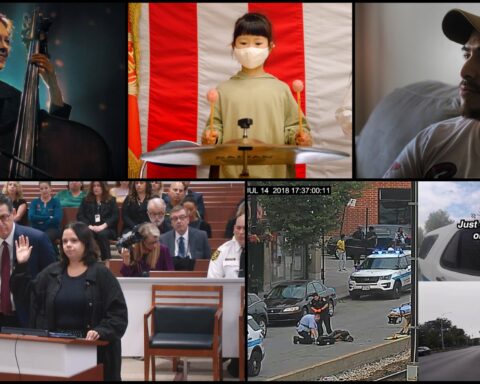The 33rd edition of the International Documentary Film Festival Amsterdam (IDFA), offered a wide selection of titles exploring the crucial role of capitalism in today’s society, placing a special focus on the most economically exploited areas of the world. During the current global healthcare crisis, there’s been a widespread increase of inequality, accelerating the unfair accumulation of wealth and making the topic more timely than ever. Purely by way of example, according to a recent report published by the Institute for Policy Studies, during the pandemic, the combined wealth of American billionaires increased by over $637 billion to a total of $3.6 trillion, more than the wealth of the entire African continent.
The most interesting takes on the critical discourse against capitalism were presented to IDFA’s sophisticated audiences by Carmen Losmann’s Oeconomia, Lars Edman and William Johansson Kalén’s Arica, Cecilia Aldarondo’s Landfall, Anabel Rodríguez’s Once Upon a Time in Venezuela, Nantenaina Lova’s Morning Star, and Diane Sara Bouzgarrou and Thomas Jenkoe’s The Last Hillbilly.
The first provocative title, Oeconomia, digs deep into the innermost mechanisms of the capitalist system. In particular, Losmann tries to understand why, over recent decades, the gulf between rich and poor has been continuously increasing while economic growth hasn’t always been accompanied by an improvement of the quality of life for many people. Overall, the film is compelling and thoroughly researched, but occasionally difficult to follow. Nonetheless, the functioning of creative financing is masterly told and the interdependence between sharp economic growth and the rise of debt (and debtors) is explored in detail, demonstrating how speculators, banks and consumers are essentially part of a dog chasing its own tail.
Arica serves as sort of sequel to Lars Edman and William Johansson Kalén’s debut feature Toxic Playground, which led to the largest transnational corporate accountability case ever held in Scandinavia. The new doc starts in 1984 when Swedish mining giant Boliden had a large amount of toxic waste shipped to Arica, Chile, where it was supposed to be properly processed by Promel, a local firm. But only a fraction of the waste was handled by the company while most of it was dumped in the outskirts of the desert town. The consequences of this brutal act of contemporary colonization and irresponsible capitalism are still visible and painful: many adults developed several forms of cancer, babies were born with birth defects and thousands ended up breathing large amounts of arsenic. Edman and Johansson Kalén genuinely attempted to provide a balanced, respectful narrative, inviting the company lawyers and representatives to have their say; nonetheless, their evasive answers and arguments spoke for themselves. The legal battle has not ended yet, even though Arica’s lawyers lost their first cause in Swedish courts in 2018 and, one year later, their appeal proved unfruitful.
Cecilia Aldarondo’s Landfall shows glimpses of daily life in Puerto Rico following the Hurricane Maria’s disaster of 16 September 2017. The film testifies to another history of institutional failure; here, the inadequate action of local authorities and the US government allowed the death of a number of people owing to the lack of financial support, water and power, which aggravated the precarious situation caused by previously installed austerity policies. The ex-ploitation process implemented by capitalism is here embodied by the film’s main “villains,” who speculate on a sudden tragedy and are capable of trans-forming it into another opportunity for profit. In particular, said “villains” are a group of luring cryptocurrency gurus ready to make motivational speeches filled with fluff and set up improbable financial schemes. Providing full answers to all of these absurdities would have made the scope of Aldarondo’s work too broad but, on the whole, the mission of showing the viewers an urgent wake-up call about the island’s troubled state of affairs can be considered accomplished.
Another documentary hit was Venezuela’s Oscar bid for the best international feature category, Once Upon a Time in Venezuela. The feature is set in Congo Mirador, a small, tranquil settlement on the edge of Lake Maracaibo, once prosperous but now in constant decline. Director Rodríguez decides to follow two characters in particular: Tamara, a businesswoman loyal to Nicolás Maduro’s rule, and her rival Natalia, a teacher and ardent supporter of the opposition. Throughout the film, the sedimentation making the village’s house shallower acts as an impressive metaphor of the country’s disarray, where 94% of its population lives in poverty and millions are leaving out of desperation. Moreover, the work seems to catch the zeitgeist of a nation that proclaims it-self as a socialist, Bolivarianist republic but is nevertheless a victim of wild speculation and widespread corruption as much as their foreign capitalist rivals – and, in truth, even more. Commendably, the portrait of this fragmented community is not presented, with pietism and miserabilism; on the contrary, the director’s point of view remains lucid to highlight two visions of the world that are unable to communicate with each other.
A Madagascan-Réunionese co-production taking part to the main competition, Nantenaina Lova’s Morning Star is set in Andaboy, a sacred beach located in the south-western part of Madagascar. This untouched paradise, populated by local fishermen, was already risking collapse due to Chinese trawlers decimating fish stocks when a more powerful threat arrived: Base Toliara, an Australian mining company, ready to build a harbour and displace 8,000 residents living in five different municipalities. Bravely shot by Lova as a one-man filmmaker, we get to appreciate the great fortitude of this community. The Malagasians’ battle is not just about fighting against the multinational corporations’ misdeeds, but, more importantly, it’s about protecting their own dignity and that of their ancestors. While the film does not stand out of the crowd for any particular formal or narrative aspect, the observational approach adopted by the director is delicate and well balanced and does justice to the community’s passionate cause.
The Last Hillbilly, gripping but at times disorienting, is composed of a series of episodes, which tells the harsh life of Brian Ritchie, who claims to be “the last free kid in America” and lives in Talcum, Kentucky with his family. Shot with an Academy aspect ratio, perhaps with the intent of depicting a universe stuck in the 1930s, and enriched by Brian’s calm, pensive voice-over, Bouzgarrou and Jenkoe’s film has capitalism representing–along with the “spectrum” of modernization–an inevitable system that marks the end of a long era, which start-ed at the time of the American frontier. Brian’s kids are enchanted by watching Youtube videos and playing videogames while dreaming of leaving their village or pursuing plans for a future, which is different from those of their parents and ancestors. The bleak score by Jay Gambit is the icing on cake of this engaging tale and accentuates the omnipresent feeling of inevitability.





